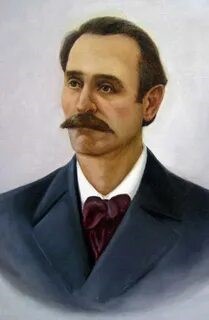
Ismail Gasprinsky was a public and political figure, educator, teacher and publisher.
He was born in the Crimean village of Avdzhikoy in March 8, 1851. He attended classes at a madrasah in Bakhchisaray, at a gymnasium in Simferopol, and at the cadet corps in Voronezh. He resided in the Moscow home of the renowned Slavophile M.N. Katkov between 1865 and 1867. He began teaching Russian at the Zynjirly madrasah in the Crimea in 1867. Gasprinsky was I.S. Turgenev’s secretary in 1871 and worked as a translator for an advertising agency while attending the Sorbonne in Paris. He became close to the French liberals, wrote his book: An Impartial View of European Civilization (Bakhchisaray, 1885), in which he attempted to show ways to overcome the colonial dependence of the East on the West. He resided and worked in Istanbul in 1874–1875, writing correspondence for several newspapers in St. Petersburg, Moscow, and Odessa. When he returned to the Crimea in 1876, he went to work as a teacher. He was elected mayor of Bakhchisaray in 1878. He started publishing Tarjeman, the country’s first Turkic-language newspaper, in April 1883, and advocated for the “unity of language, thought, and action” of Muslims as the foundation for the cultural and national unity of Russia’s Turkic peoples. Gasprinsky focused his efforts on the establishment of new, reformed kuttabs and madrasahs because he saw education as a prerequisite for the resurgence of Muslims on a national level. He established a madrasah in 1884 and implemented an innovative audio teaching approach for the Arabic alphabet, adding a variety of secular subjects to the curriculum. Many new method educational institutions in Russia were inspired by his madrasah. Gasprinsky was engaged in book publishing, arranged the printing of the Quran in Bakhchisaray. Since 1906, he published in the Crimean Tatar language a magazine for Muslim women Galyame Niswan (Women’s World). In 1910, the Parisian magazine La Revue du Monde Musulman (The Muslim World) made a proposal to award Gasprinsky the Nobel Peace Prize. He died in September 24, 1914 in Bakhchisaray, and was buried near the Zinjirly madrasah.
